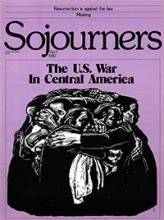Reading Romans 8:26-39 in a small group recently, I was struck most by the last four verses:
Who shall separate us from the love of Christ? Shall tribulation, or distress, or persecution, or famine, or nakedness, or peril, or sword? As it is written, "For thy sake we are being killed all the day long; we are regarded as sheep to be slaughtered." No, in all these things we are more than conquerors through him who loved us. For I am sure that neither death, nor life, nor angels, nor principalities, nor things present, nor things to come, nor powers, nor height, nor depth, nor anything else in all creation, will be able to separate us from the love of God in Christ Jesus our Lord.
This remarkable and uplifting passage describes the unshakable promise of God. The context of these verses is important. Paul assumes that weakness, conflict, and hardship are normal for the Christian life and, for that matter, human life. We Americans have a hard time understanding that and assume that adversity is abnormal and must be avoided.
In fact, the goal of American Christianity is to get out of adversity and into security. We believe in the God of the quick fix who will make us happy, prosperous, and protected. We are forever wanting to get out of our bad feelings, insecurities, and weaknesses and move into strength, security, and control. And we ask God to help us, to take our problems away. We seek the book, speaker, counsel, experience, or prayer that will get us out of our difficult situation.
All of this is a false gospel.
For Paul adversity is part of life, and especially part of the Christian life lived in conflict with the world.
Success, according to this passage, is not the avoidance of adversity but knowing the love of God in adversity. The promise made by the passage is not that God will remove the difficulties of life, but that God will continue to love us through them.
Read the Full Article

